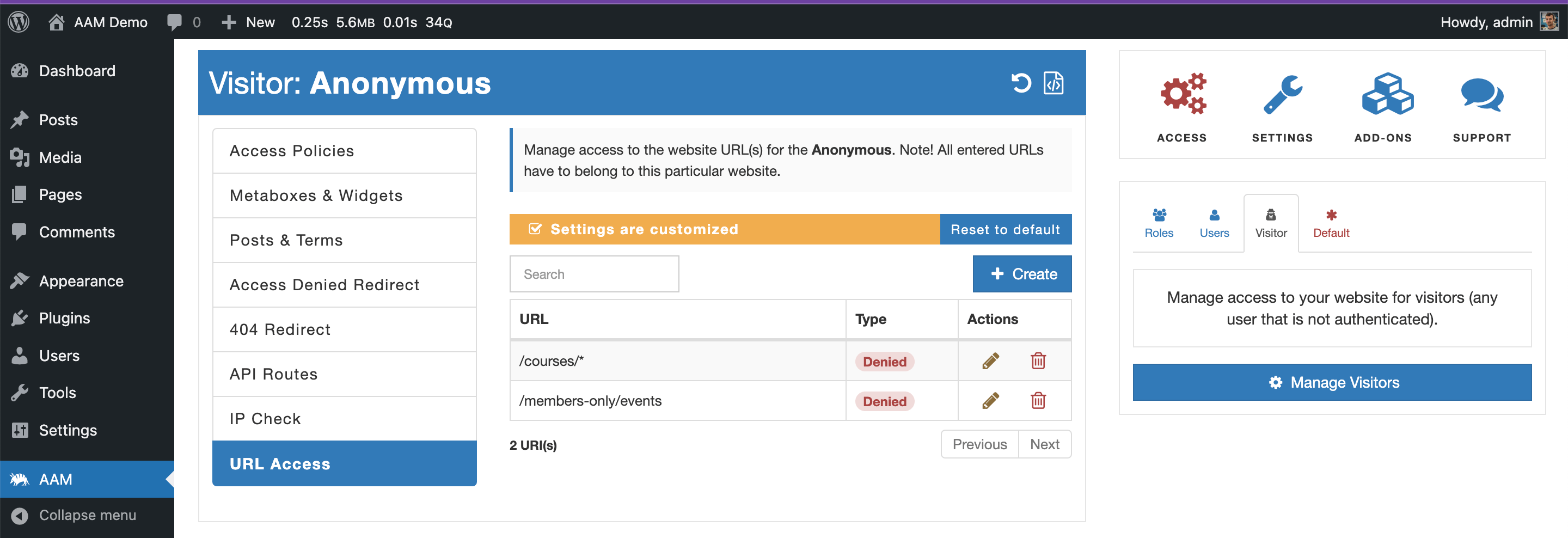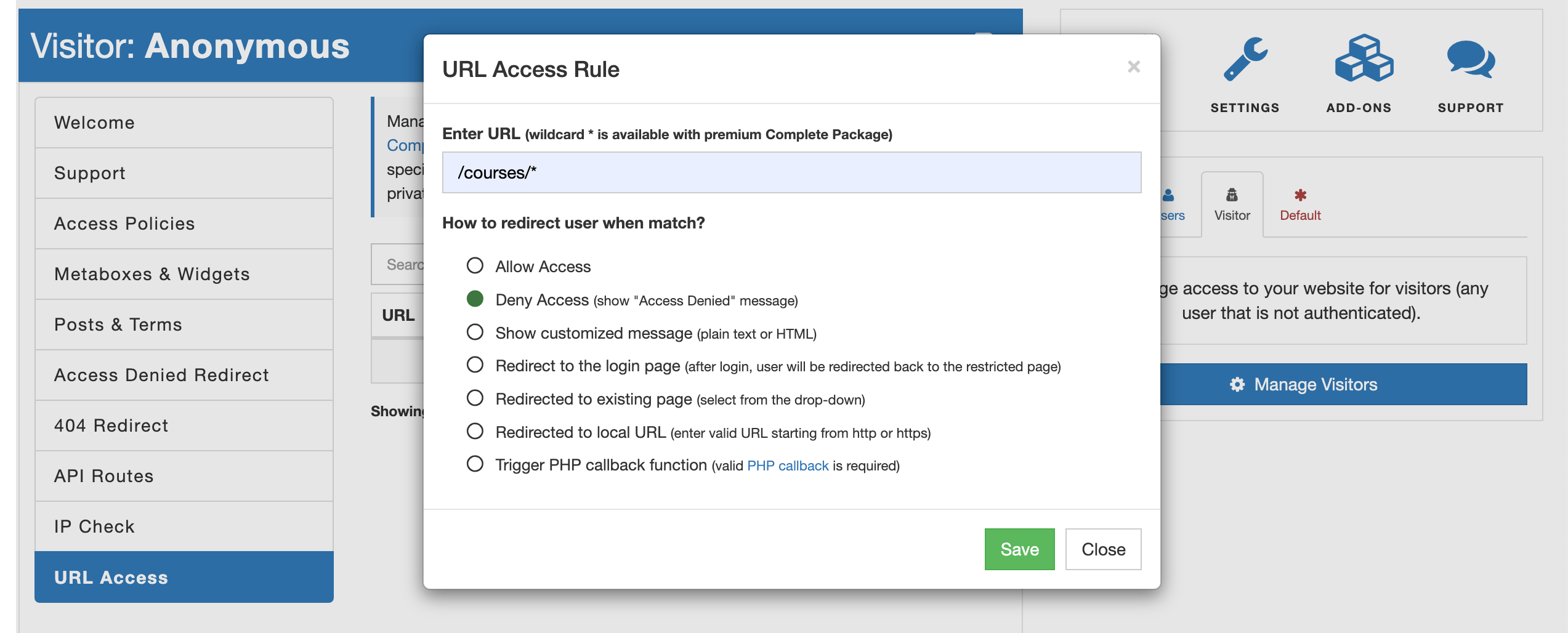Managing access to the WordPress website URLs
Before diving into the details, here are some quick facts about the AAM URL Access Service:
Unlimited URL definitions. With AAM URL Access service, you can define an unlimited number of URLs for free. This means you have the flexibility to fine-tune access controls for every corner of your website.
Privacy with premium add-on. While the basic service is free, you can take your website's security to the next level by making the entire site private using the premium add-on.
Wildcard annotation. The premium add-on also introduces the concept of wildcard annotation, allowing you to manage access to a group of URLs effectively.
Custom access behavior. Customize the user experience by redirecting visitors to a different location, displaying a custom message, or triggering a PHP function when they encounter restricted content.
Now, let's explore how the AAM URL Access service can revolutionize your WordPress website's access control strategy.
URL Access made easy
Managing access to specific URLs within your WordPress website has never been more straightforward. Whether it's a frontend, backend, or RESTful API URL, the AAM URL Access service has you covered.

This service empowers you to define access controls with precision, ensuring that only authorized users can access restricted content. Here are some of the key features and options that come with the AAM URL Access Service:
Deny Access. Choose to deny access to restricted URLs, displaying a clear "Access Denied" message to users attempting to access unauthorized content.
Show Customized Message. Craft a tailored user experience by providing simple text or complex HTML markdown that users see when they encounter restricted content. This allows you to communicate access restrictions effectively.
Redirect to the Login Page. For unauthenticated users, redirecting them to the login page ensures that only authenticated individuals can access restricted content. After successful authentication, users are redirected back to the original page they intended to access.
Redirect to an Existing Page. Redirect users to a specific page of your choice and decide which HTTP redirect code to use during the process (e.g., 307 Temporary Redirect, 301 Moved Permanently, and more). This feature gives you full control over the user experience.
Redirect to Local URL. Enhance security by allowing redirection only to URLs within a list of approved domains, typically limited to your website. This prevents external redirections that could compromise security. For more information refer to Understanding safe redirects in WordPress article.
Trigger PHP Callback Function. For advanced users, AAM URL Access Service lets you trigger a custom PHP callback function, allowing for highly customized redirection or changes in the user experience.
Protecting URLs with wildcard denotation
With the premium Complete Package, you gain access to even more powerful features. This includes the ability to protect a group of URLs using wildcard * denotation. For example, you can secure URLs like /courses/how-to-write-essay or /courses/introduction-to-aws with a single rule such as /courses/*.

Conclusion
The AAM URL Access service for WordPress empowers website administrators with a versatile and user-friendly tool to manage access to specific parts of their websites. Whether you're looking to restrict content, communicate effectively with users, or enhance security, this service offers a range of options to meet your needs. With the additional premium add-on, you can take your access control strategy to the next level, providing a seamless and secure experience for your website visitors.